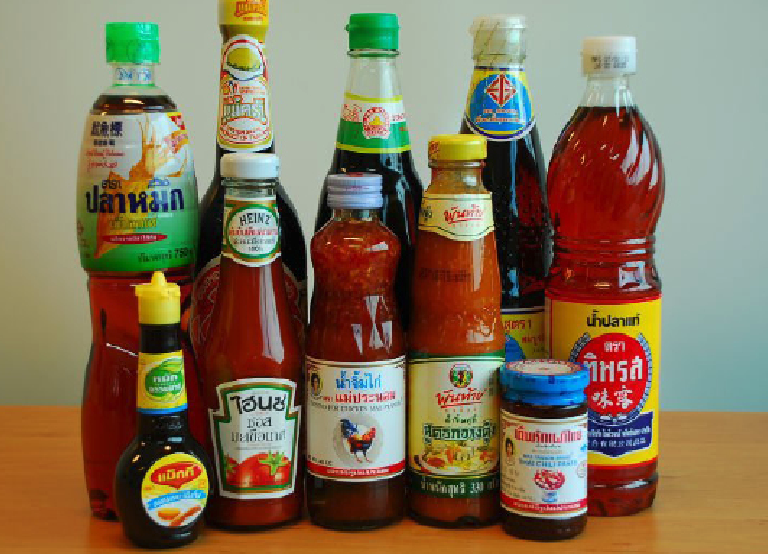How to live in an international flat
Chanon Wongsatayanont offers advice on peaceful coexistence

You’ve probably had a flat mate who’s from a different culture. For some of you, it might have gone like this. Day one, things were going well. Day seven, tensions began with unwashed dishes. Day twenty-five, both sides mobilized for war over a party that had turned the corridor into a disaster-ravaged scene.
When people from different cultures live together, standards of how to live clash head on. What’s OK and not OK for each culture will be tested and challenged, and everyone will have to adjust. Eventually someone will have to give in and accept that’s the way things are going to be. Settling on who’s going to do that without making things blow up is the tough part, especially when you both started off as complete strangers.
Flat mates coming from the same country would know that conflicting habits are frustrating, to say the least. I mean, some people are used to ‘borrowing’ milk at home but if you’ve been living alone for a while, your stuff is your stuff. When these two people meet, it can start off irritating, but it can also make life hell for the whole flat if they decide to make it personal. We’re students; I’m sure you’ve heard horror stories of flats that have become warzones.
Now add cultural differences to the mix. Wacky food smells, strange condiments lurking around the kitchen, language barriers, they add whole new dimension of things you’ll have to cope with. Worse, racial stereotypes aren’t going to help with understanding each other either. Once you begin labelling another person as ‘that typical anti-social Asian’ or ‘that noisy Westerner’, chances are they’ll stay that way for the rest of your time together. You might have just misunderstood then, but more on that later.
Here are some of the ways to smooth out the ride with your international flat mates:
Address different expectations
This is the easiest way to get to the root of the problem. You’ll have to remember that being from different cultures means that you have different assumptions about how things are done. So sometimes, the annoying neatness or messiness of people can be a matter of culture.
For example, in Asian countries, usually under the guidance of demanding parents, dishes have to be cleaned immediately and the table can’t be messy when you’re done using it. After being enforced enough times to do that, it often becomes an unspoken way of doing things. That’s the origin story for the super-neat Asian stereotype.
Meanwhile, the Western parenting method is usually more laid back, where cleaning up can be left for tomorrow morning or later, depending on the home. You can see how the habit would clash against how an international student has been brought up.
Being brought up in Thailand myself, I’ve been through some adjusting. I used to live in a flat with three other British students and I remember how my flat mates would soak dishes in soapy water for a night before cleaning it up the next day. Believe it or not, that’s the first time I’ve seen someone soaking their dishes. I thought they were just being lazy; I didn’t even know that it was the norm here until I asked them.
It doesn’t hurt to ask how things are normally done where your flat mate was originally from. Even if they don’t change their behavior, you can at least understand where they’re coming from which would make it more tolerable or even change your thoughts. Without the understanding, you’d probably think that they’re doing it to piss you off, easily making it a personal thing rather than cultural.
There is no harm in asking!
As students from another culture are probably used to their way of living, they’d probably not notice that their lifestyle is bothering anyone else. In this case, a nudge and a friendly reminder is usually enough to change someone’s way of doing things. Much better than muttering under your breath and gossiping about ‘that goddamn flat mate’, huh?
For example, I used to have some sweet-smelling (opinions may vary) green curry paste in the fridge. Of course I didn’t notice it since no one ever minded back at home. One day, my flat mates told me that they’ve been discussing among themselves and decided to tell me that the curry is stinking out the fridge. I was mortified, apologized and quickly bought some cling film to cover it up. The curry’s sweet smell is now kept all to myself. The problem is solved painlessly.
No racial stereotyping
I’ve mentioned this briefly earlier in the article. Why not? That’s because it would leave the flat chilly for the rest of your time there, widening the chasm between you and the international students you’ve branded. There would be no chance to come to a better understanding and your flat mate will remain that caricature for the rest of your time there.
It’s kind of a self-fulfilling prophesy. For example, if you think that your flat mate is so anti-social that she only hangs out with her international friends, you’re probably going to ignore her every time you see her around the flat. Now to her perspective. If she thinks that you’re giving her a cold shoulder, she’d think that there’s no one else she can hang out with apart from her friends from home. See how that works?
Granted, initially she might be a bit shy. She might just be anxious in a new country and faced with language barriers, but that doesn’t mean she’s anti-social and unfriendly. Give her a chance and try socialising. She might be relieved to find a friendly flat mate that can help her settle into the new country!
Living with people from overseas isn’t always a pain as long as you’re willing to reach a more understanding position. It can also be more rewarding than you thought. You can hear stories from their hometown that you’d get to hear nowhere else. And if you become best mates, you can even get a chance to visit their country and stay with them too!









